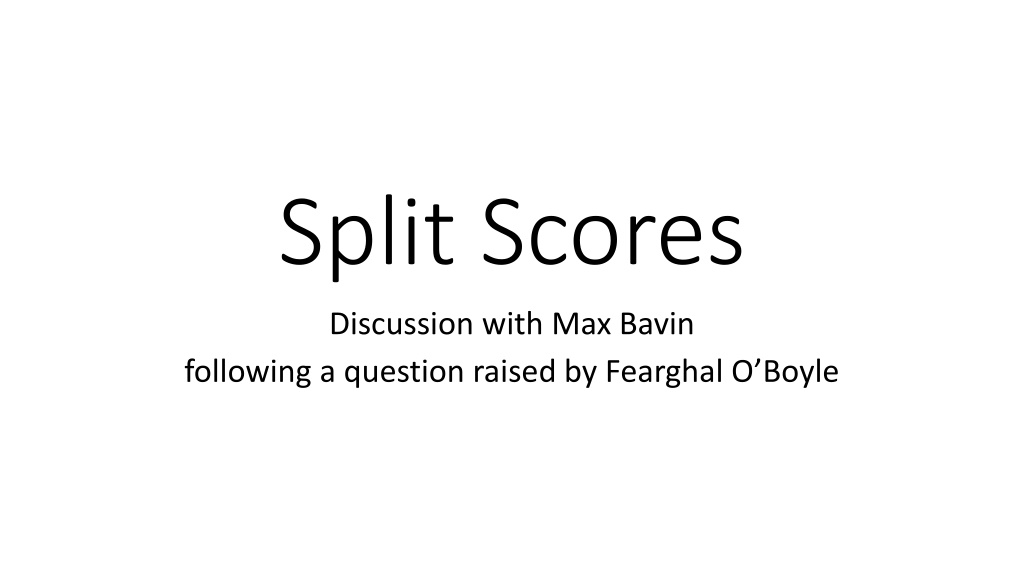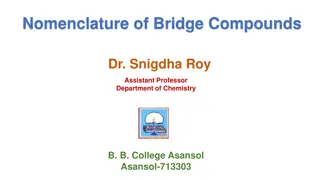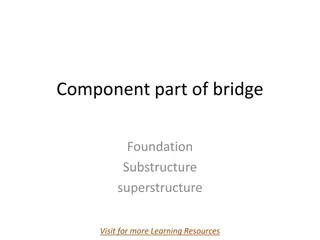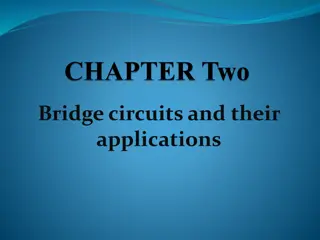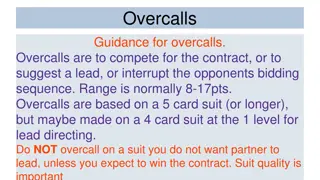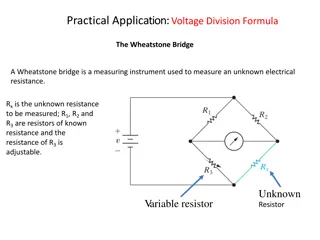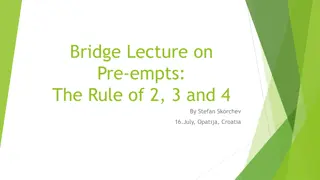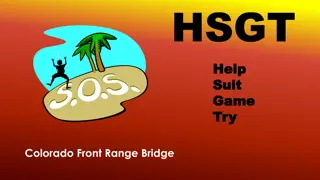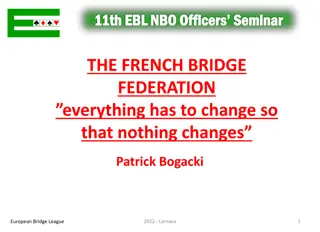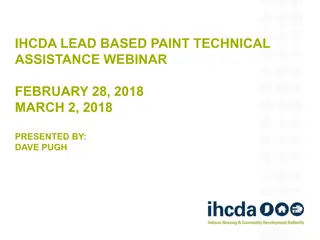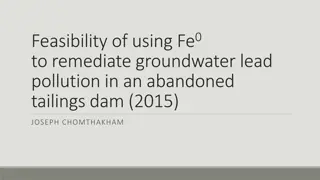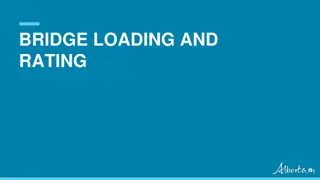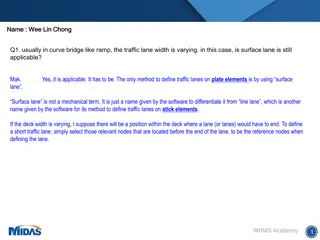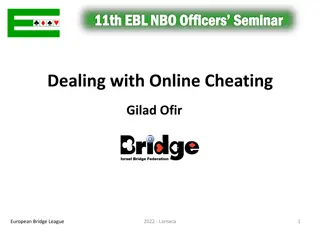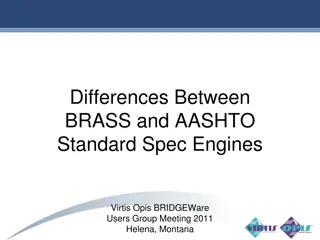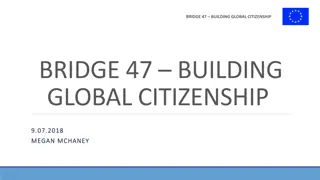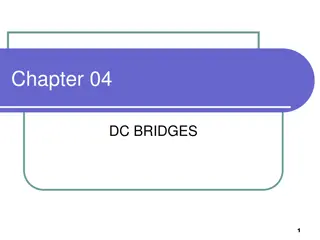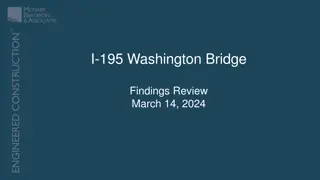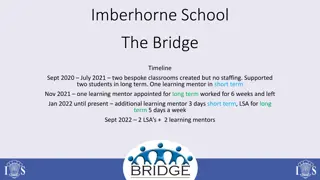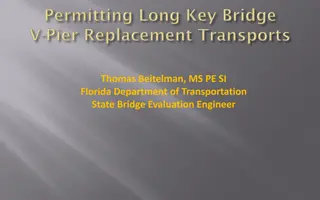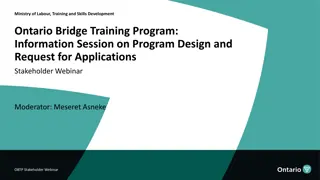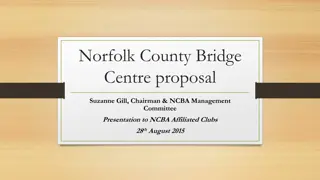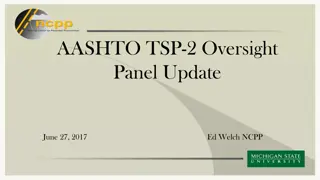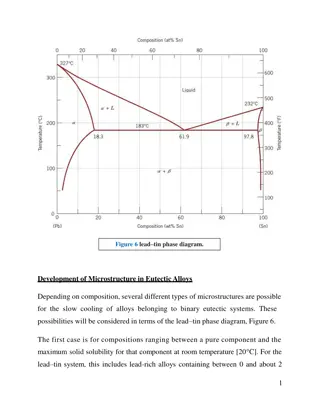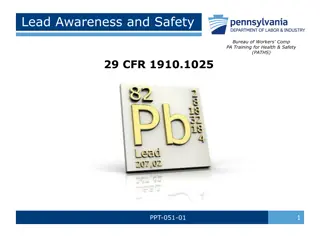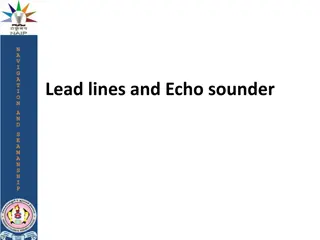Discussion on Declarer's Lead Out of Turn in Bridge
Split scores scenario discussed by Max Bavin and Gordon regarding a declarer in 6NT leading out of turn from dummy and the defenders accepting the lead. The conversation delves into the application of Laws 11 and 72 in such situations and the consideration of awarding a split score.
Download Presentation

Please find below an Image/Link to download the presentation.
The content on the website is provided AS IS for your information and personal use only. It may not be sold, licensed, or shared on other websites without obtaining consent from the author. Download presentation by click this link. If you encounter any issues during the download, it is possible that the publisher has removed the file from their server.
E N D
Presentation Transcript
Split Scores Discussion with Max Bavin following a question raised by Fearghal O Boyle
Hi Do we finally have an answer to the old problem, where declarer is in 6NT needing to cash 6 winners in an entryless dummy to make his contract. He solves his problem by leading out of turn from dummy and a sleepy defender condones the lead. Do we agree declarer scores 6NT-some number and the defenders score 6NT made against them? Strictly speaking are we using law 11 or 72? or does it matter? Kind regards, Fearghal
Hi Fearghal, I thought this was straightforward until I actually looked at the book! My instinct was to do as you suggest, but I find some problems with this which may well be what was behind your question: I doubt Law 11 applies, because it is most likely that the NOS took their action through carelessness, not through ignorance of the law. 72C does seem to apply, but since it doesn t give a precise method for adjusting, we need to look at the general methods given by L12 and there we no longer have the explicit possibility of non- balancing scores, other than for gambling actions or extremely serious errors unrelated to the infraction. Instead, we are told that we should seek to recover as nearly as possible the probable outcome of the board had the infraction not occurred. So that would lead us to 6NT-a number for both sides. Have I missed something? Gordon
Gordon, I agree this is not at all a law 11 case, though not quite for the reason you give. In actual fact, the penalty for a lead out of turn is that the opponents can accept it; so, far from forfeiting their right, the defenders have actually exercised it! (for sure they'll wish they hadn't, and for sure it was only done because they were asleep.) I also agree that we can't award a split score. There are only two circumstances which can lead to a split score, and neither apply here. One is the law 12C1(e) case of "subsequent" error "unrelated to the (original) infraction" and the other is via law 11A itself. Max
> On 4 Aug 2017, at 14:19, Gordon Rainsford <Gordon@ebu.co.uk> wrote: > > Thanks Max. One pedantic point: 79b3 also requires split scores, not that it is relevant here. > > Sent from my iPhone so may be rather brief
Hi Gordon, You are quite right. There is indeed a 3rd situation which can lead to a split score (79B3). Thanks, Max
On 15 Aug 2017, at 15:44, Gordon Rainsford <Gordon@ebu.co.uk> wrote: And a fourth one - 43B3! Gordon
Gee, thanks; good job I never delivered the lecture about there being only two! It reminds me of that old Spanish Inquisition Monty Python sketch! Max
On 25 Sep 2017, at 21:22, Gordon Rainsford <Gordon@ebu.co.uk> wrote: To hark back to this old discussion, if those four are the only circumstances in which we can award a split score (L12C1f having disappeared), how do we apply 82C? Gordon
OK, that's five. I'm sure you'll let me know if/when you find the 6th! Max
What about Law 16D (or Law 86B1)?!
Since Law 12C1(f) in the 2007 laws was removed for the 2017 update, we should not award split scores when we are directed to use Law 12 for a score adjustment.
We should only consider awarding split scores when: there are no offending sides (scores may add up to more than 100% or 0 IMPs), or there are two offending sides (scores may add up to less than 100% or 0 IMPs). Note that giving a split score in a Swiss Pairs event may lead to some other unconnected matches being awarded a total of <>20 VPs.
As to your question about the award of a split score - I don't believe that currently there is any specific authorisation to be found within the laws for the award of assigned split scores in the 16D2/86B1 situation described. Of course having answered your question, I can now admit that I regularly do exactly what you are suggesting! To me this falls into the same bucket as 'sympathetic weighting' (which also doesn't have any specific authorisation). When it comes to assigning a reciprocal score via 12C1(c) it is now general practice to 'vary' the raw percentages derived from the poll such that the final weighted result slightly favours the non-offending side. Since this is considered to be acceptable for complementary adjustments, I can see no reason why the same process should not also apply (in the rarer situation) where both sides are non-offending. It is interesting that we do have an authorisation to award non-balancing favourable artificial adjusted scores (i.e., 12C2), but not an explicit one for two non-balancing favourable assigned adjusted scores (and yet 12C1(a) promotes the use of assigned scores in preference to artificial ones). The absence of the word 'artificial' in Law 82C is also interesting because it instructs the Director to treat both sides as non-offending. So if one can legally assign weighted split scores for 82C irregularities, then surely we can do the same for other scenarios involving two non-offending sides? Regards Laurie NB PERSONAL OPINION, NOT OFFICIAL WBF POSITION
